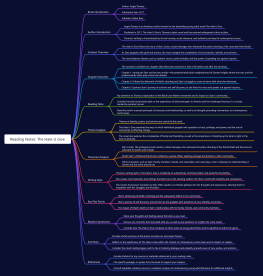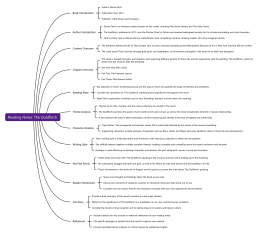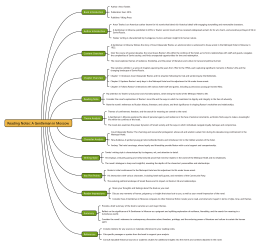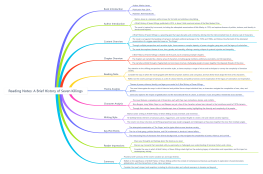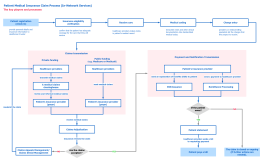
Socioeconomic Health Research Results
0 Report
This comprehensive mind map delves into the intricate relationship between socioeconomic factors and health outcomes, offering a robust framework for understanding and addressing public health disparities. The research begins with a clear objective, emphasizing the importance of examining how variables such as income, education, occupation, housing, and healthcare access impact physical and mental health outcomes like mortality, chronic diseases, depression, and stress. Utilizing a detailed methodology, the study engages the audience by highlighting the significance of its findings in shaping public policy and intervention strategies. Key findings underscore the associations between socioeconomic factors and health outcomes, revealing significant trends and disparities. Subgroup analyses further dissect these associations across demographic lines—age, gender, race/ethnicity, and geographic location—while also focusing on vulnerable populations such as low-income individuals, minorities, immigrants, and people with disabilities. The research explores mediating factors like healthcare access, lifestyle behaviors, and social determinants that elucidate these relationships. The implications and recommendations section advocates for evidence-based policies to mitigate health disparities, proposing healthcare interventions and public health programs to improve access to care. It stresses the necessity of community engagement and collaboration among healthcare providers, community organizations, and policymakers. The study acknowledges its limitations, suggesting areas for future research, including longitudinal studies and interdisciplinary approaches. In conclusion, the research calls for translating findings into actionable policies and community initiatives to promote health equity and social justice, urging stakeholders to implement strategies that ensure equitable access to health resources and opportunities for all.
Related Recommendations
Other works by the author
Outline/Content
See more
Introduction
Research Objective
Briefly state the objective of the research, emphasizing the importance of investigating the relationship between socioeconomic factors and health outcomes.
Overview of Methodology
Provide an overview of the research methodology, including study design, data collection methods, sample characteristics, and statistical analyses used.
Audience Engagement
Engage the audience by highlighting the significance of the research findings in addressing public health disparities and informing policy and intervention strategies.
Key Findings
Socioeconomic Factors
Present the socioeconomic factors examined in the study, such as income, education, occupation, housing, and access to healthcare services.
Health Outcomes
Discuss the health outcomes investigated, including physical health indicators (e.g., mortality, morbidity, chronic diseases) and mental health outcomes (e.g., depression, stress, quality of life).
Association Analysis
Summarize the associations between socioeconomic factors and health outcomes identified in the research, highlighting significant findings, trends, and disparities.
Subgroup Analyses
Demographic Subgroups
Explore subgroup analyses based on demographic characteristics such as age, gender, race/ethnicity, and geographic location to identify disparities and differential effects.
Vulnerable Populations
Examine the impact of socioeconomic factors on vulnerable populations, including low-income individuals, minorities, immigrants, and individuals with disabilities.
Mediating Factors
Investigate potential mediating factors or pathways that explain the relationship between socioeconomic status and health outcomes, such as healthcare access, lifestyle behaviors, and social determinants of health.
Implications and Recommendations
Policy Implications
Discuss the policy implications of the research findings for addressing socioeconomic disparities in health outcomes, advocating for evidence-based policies and interventions to promote health equity.
Healthcare Interventions
Propose healthcare interventions and public health programs aimed at reducing socioeconomic barriers to health and improving access to preventive care, treatment, and support services.
Community Engagement
Highlight the importance of community engagement and collaboration in addressing social determinants of health, fostering partnerships between healthcare providers, community organizations, and policymakers.
Limitations and Future Research
Study Limitations
Acknowledge the limitations of the research, including potential biases, confounding variables, measurement errors, and generalizability constraints.
Future Research Directions
Identify areas for future research and exploration, such as longitudinal studies, qualitative inquiries, interdisciplinary collaborations, and innovative methodologies for assessing socioeconomic health disparities.
Conclusion
Summary of Key Messages
Summarize the key messages and implications of the research findings, emphasizing the importance of addressing socioeconomic determinants of health to achieve health equity and social justice.
Call to Action
Call for action to translate research findings into policy reforms, community initiatives, and healthcare practices that promote equitable access to health resources and opportunities for all individuals and communities.
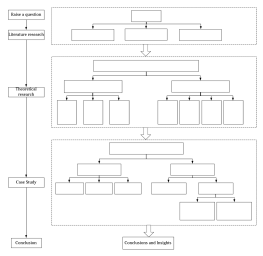
Collect
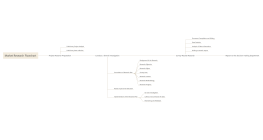
Collect

Collect

0 Comments
Next Page
